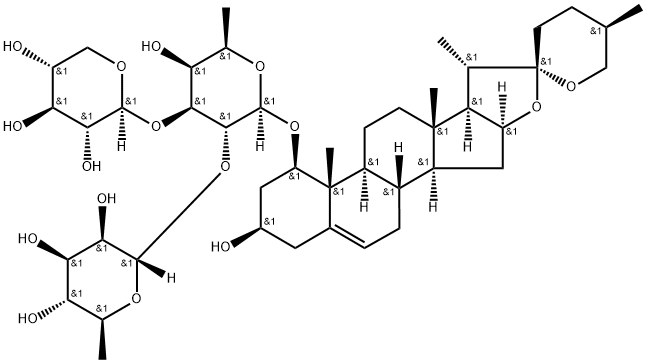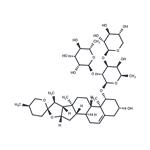Uses
Ophiopogonin D is a natural product isolated from Radix Ophiopogon japonicus that protects the heart against doxorubicin-induced autophagic injury by reduction of both ROS generation and the disruption of the mitochondrial membrane damage.
Application
Ophiopogonin D is a bioactive compound that is found in Salvia miltiorrhiza. It has been shown to have hypoglycemic effects and significant cytotoxicity against tumor cells, which may be due to its ability to inhibit glucose uptake. It also causes mitochondrial membrane potential reduction, leading to the induction of apoptosis. This compound also has immunomodulatory effects. In addition, it inhibits the activation of toll-like receptors and prevents the translocation of nuclear factor-κB into the nucleus. Ophiopogonin D also has an effect on bowel disease, myocardial infarcts, and energy metabolism by inhibiting c-jun phosphorylation.
Definition
ChEBI: Ophiopogonin D is a steroid saponin.
Biological Activity
Ophiopogonin D is a steroidal glycoside extracted from Ophiopogon japonicas th at promotes antioxidative protection of the cardiovascular system. Ophiopogonin D protects the heart against doxorubicin-induced autophagic injury by reduction of both ROS generation and the disruption of the mitochondrial membrane damage.



